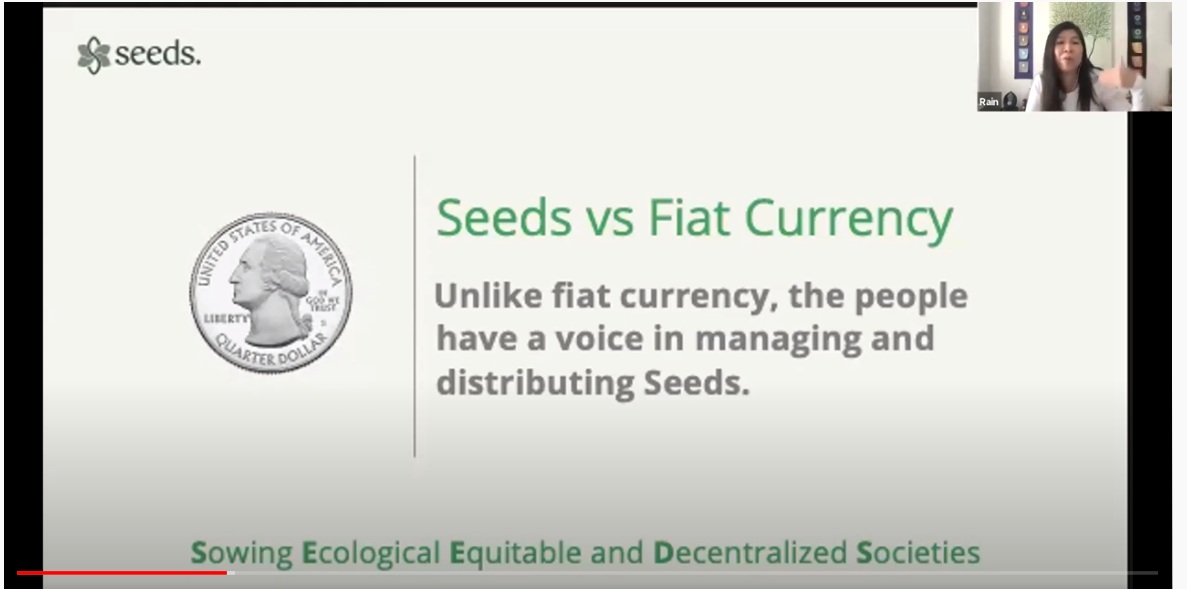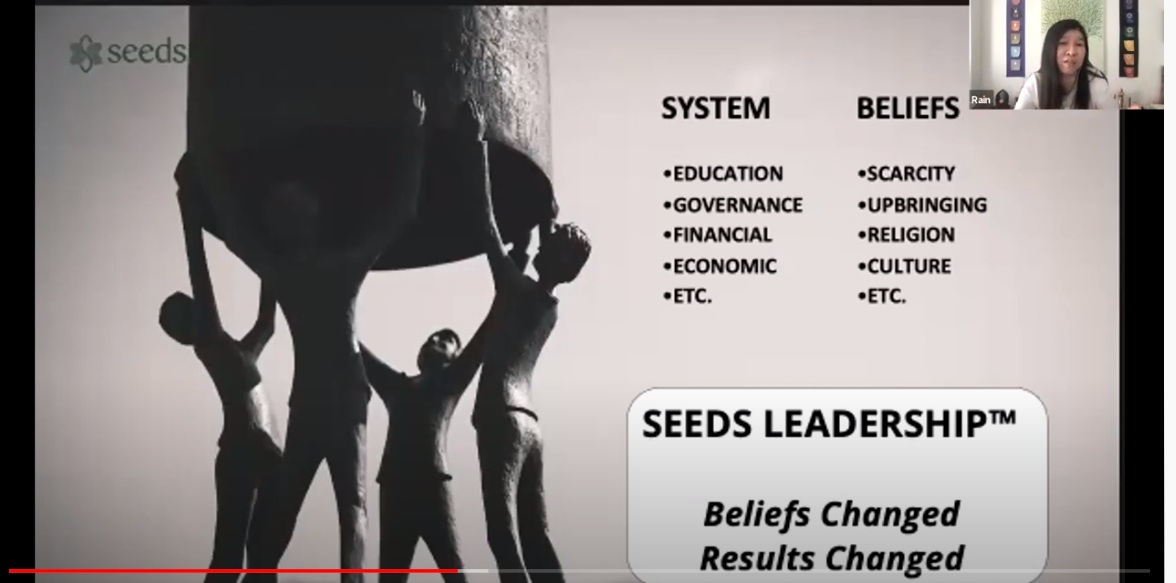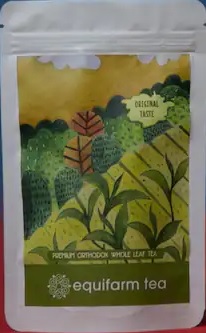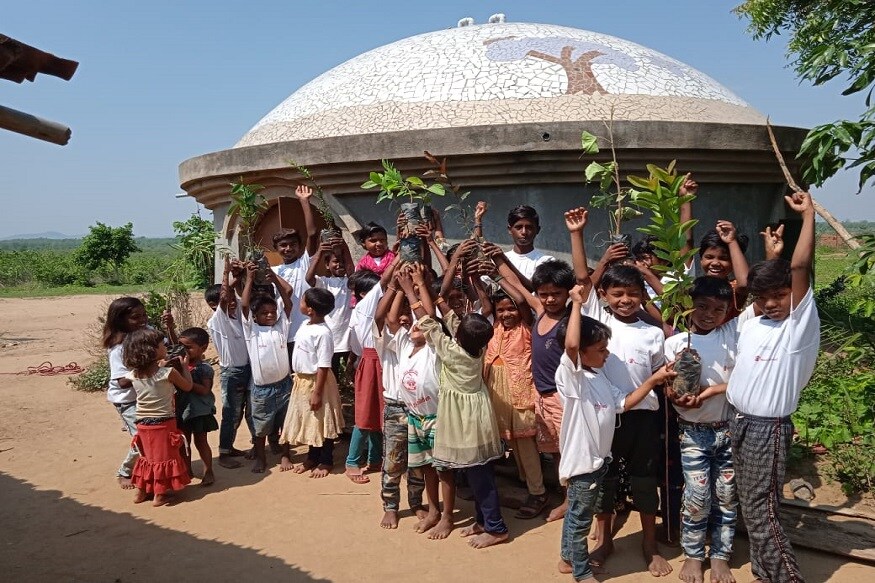Alternative Pathways
The Principles of Farming in Harmony with Nature
“The fundamental principles of natural farming are quite simple,” declares Bhaskar Save. “The first is, ‘all living creatures have an equal right to live’. To respect such right, farming must be non-violent.
“The second principle recognizes that ‘everything in Nature is useful and serves a purpose in the web of life’.
“The third principle: farming is a dharma, a sacred path of serving Nature and fellow creatures; it must not degenerate into a pure dhandha or money-oriented business.” Short-sighted greed to earn more – ignoring Nature’s laws – is at the root of the ever-mounting problems we face.
“Fourth is the principle of perennial fertility regeneration.
SEEDS - The Regenerative Renaissance with Rebecca Saltman by Dr. Rain Lim - https://www.youtube.com/watch?v=HjsRnp4-BPQ Truth & Reconciliation Movement 2021 -
Aug 21, 2021
SEEDS is an alternative financial and economic system governed by the people and designed to regenerate our planet. Leveraging blockchain technology, it aims to align finance with purpose and encourage participatory decision-making and the building of trust-based communities and local economies.


Indian tea industry: A new management flavour, thanks to small growers by Faizal Khan October 02, 2021 https://www.moneycontrol.com/news/trends/features/indian-tea-industry-a-new-management-flavour-thanks-to-small-growers-7534081.html
https://www.moneycontrol.com/news/trends/features/indian-tea-industry-a-new-management-flavour-thanks-to-small-growers-7534081.html
Owned and operated by farmers, the Grassroots Tea Corporation could transform the lives of over 2.5 lakh small tea growers in India.
many of Assam's small tea growers who depended on the market's demand-supply dynamics today no longer need to lean on big tea factories for selling their crop. A new tea corporation where small growers are stakeholders, from cultivating to manufacturing to marketing, is changing the way the tea industry works.
In the new model, small growers - farmers who own between half-bigha (.3 acres) and ten bighas (3.3 acres) - collectively set up tea producer companies that buy their green leaf and process it into tea in its manufacturing units. The "made tea", or ready-to-brew tea, is then packaged and marketed by the corporation in wholesale and retail.
"The tea market is an entrenched system of auction houses, brokers and buyers at the national and global level. We thought there should be a system by which we should aggregate the product and sell in a professional manner," explains John. "A corporation becomes a common aggregator selling it under a common brand," John adds.
Sahodaya: an alternative but native ways of learning and living,
CHILDREN ARE GIVEN EDUCATION BY TAKING ONLY ONE KG OF RICE IN GAYA https://www.etvbharat.com/hindi/bihar/state/gaya/children-are-given-education-by-taking-only-one-kg-of-rice-in-gaya/bh20210905060101060 Sep 5, 2021 इस 'गुरुकुल' में पढ़ाई की फीस है मात्र एक किलो चावल, कुकिंग और फार्मिंग की भी दी जाती है शिक्षा ... इस आश्रम में बच्चों को अच्छी तरह पढ़ाई करवाई जाती है. बच्चों को शिक्षा के साथ ही खेती करना भी सिखाया जाता है. हमलोग खेती करने वाले लोग हैं, अगर बच्चा खेती में निपुण हो जाएगा तो हमारे लिए बड़ी बात है. वे कहती हैं कि यहां शिक्षा के बदले पैसे नहीं लिए जाते हैं, बल्कि अनाज लिया जाता है.
देखें तस्वीरें: दिल्ली से M.Phil-PG कर पति-पत्नी गया के बीहड़ जंगल में चला रहे 'गुरुकुल'! https://hindi.news18.com/photogallery/bihar/gaya-after-doing-m-phil-pg-from-delhi-husband-and-wife-are-running-gurukul-in-rugged-forest-brvj-3726207.html बिहार-झारखंड से सटे गया जिले के बाराचट्टी प्रखंड मुख्यालय से लगभग 6 किलोमीटर दूर स्थित काहूदाग पंचायत के कोहवरी गांव में सहोदय आश्रम चल रहा है. इस आश्रम को एक दंपती संचालित करते हैं. इस आश्रम में 30 बच्चों को आवसीय शिक्षा दी जाती है. यहां बच्चों के चहुंमुखी विकास के लिए पुराने जमाने की विधि, यानी ऋषि मुनियों द्वारा दी जाने वाली शिक्षा की तर्ज पर आज के बच्चों को शिक्षित किया जाता है.

बीहड़ में घूमने वाले बच्चों को अपने पास रखकर कर रहे एक दम्पति शिक्षित । STREETBUZZ NEWS । https://www.youtube.com/watch?v=eZ29TwlRSMw
Sep 5, 2021
News18 Special https://youtu.be/tSG3aTY1fWU?t=723
Bholabhai Live https://youtu.be/zmTZY4cFVww?t=781 Aug 3, 2021 हंस दूध से पानी कैसे अलग करता है और क्या हीरे मोती खाता है ? || how to separate swan water from milk and other lessons .. These are self-learnt by the children of this school.
Facebook : https://www.facebook.com/kohabari
DO-NOTHING PARENTING https://jinankb.medium.com/?p=29dc25346fc
Exploring the self-transformative potential of being with children
“Parenting” is a very new modern idea, being practiced by ‘the educated’. Modern parenting seems to be a stressful activity where parents don’t know how to look after their children. This is a critical crisis!
Our natural learning system gets disabled in the process of ‘being taught’ which begins from our childhood. Not being trusted to evolve ourselves, takes away our inner self-worth to be.
